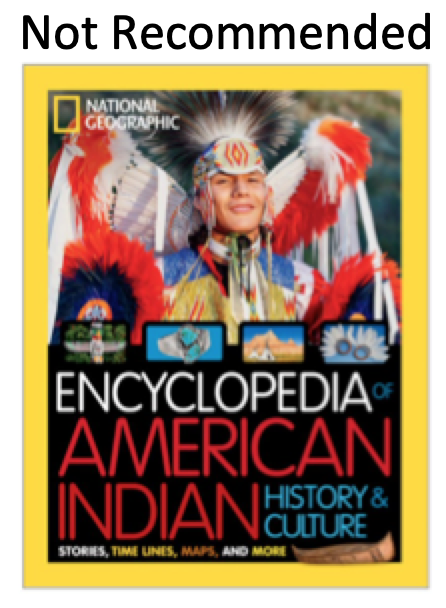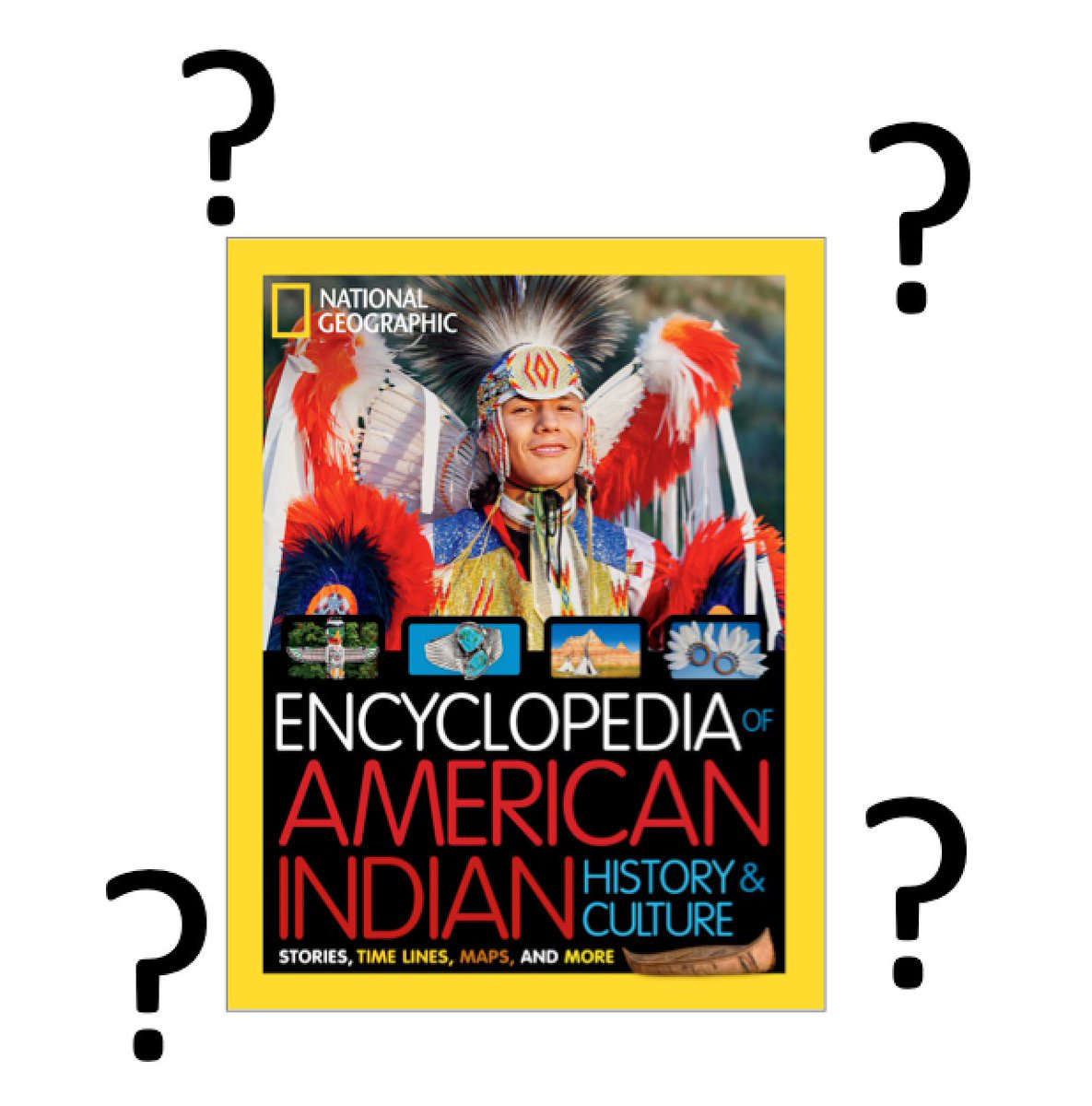Encyclopedia of American Indian History & Culture: Stories, Time Lines, Maps, and More
Written by Cynthia O'Brien
Published in 2019
Publisher: National Geographic
Reviewed by Debbie Reese
Status: Not Recommended
In late December, I did a series of tweets as I read through National Geographic's Encyclopedia of American Indian History & Culture: Stories, Time Lines, Maps, and More. Those tweets (with minor edits for clarity) are pasted below. I can't use italics on Twitter, so, I use upper case letters for book titles. Generally speaking, caps are used to denote shouting. I've passed the book on to Jean Mendoza.
****
Questions about National Geographic's ENCYCLOPEDIA OF AMERICAN INDIAN HISTORY AND CULTURE: STORIES, TIME LINES, MAPS, AND MORE are picking up. This is a thread for notes as I look through it.
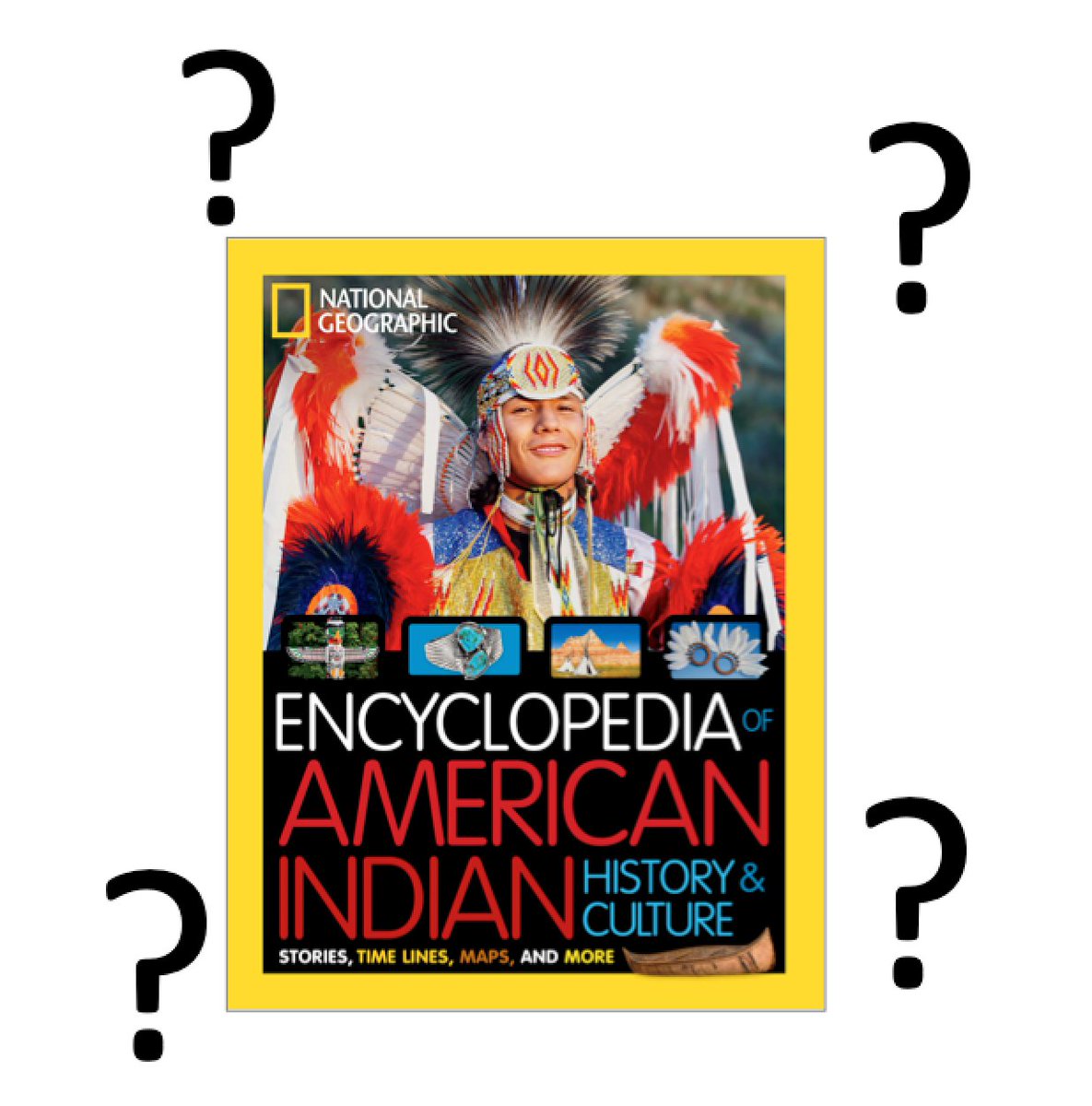
A couple of days ago, friend and colleague @readitrealgood tweeted about the use of "history of settlement" in the publisher's note. She thinks--and I agree--that "history of colonization" would be more accurate and honest:
When I got the review copy some weeks ago, I noted a deeply problematic glossary definition of boarding school as "a private school where students live." That isn't an inaccurate definition but it completely inappropriate to have it in a book about Native peoples!
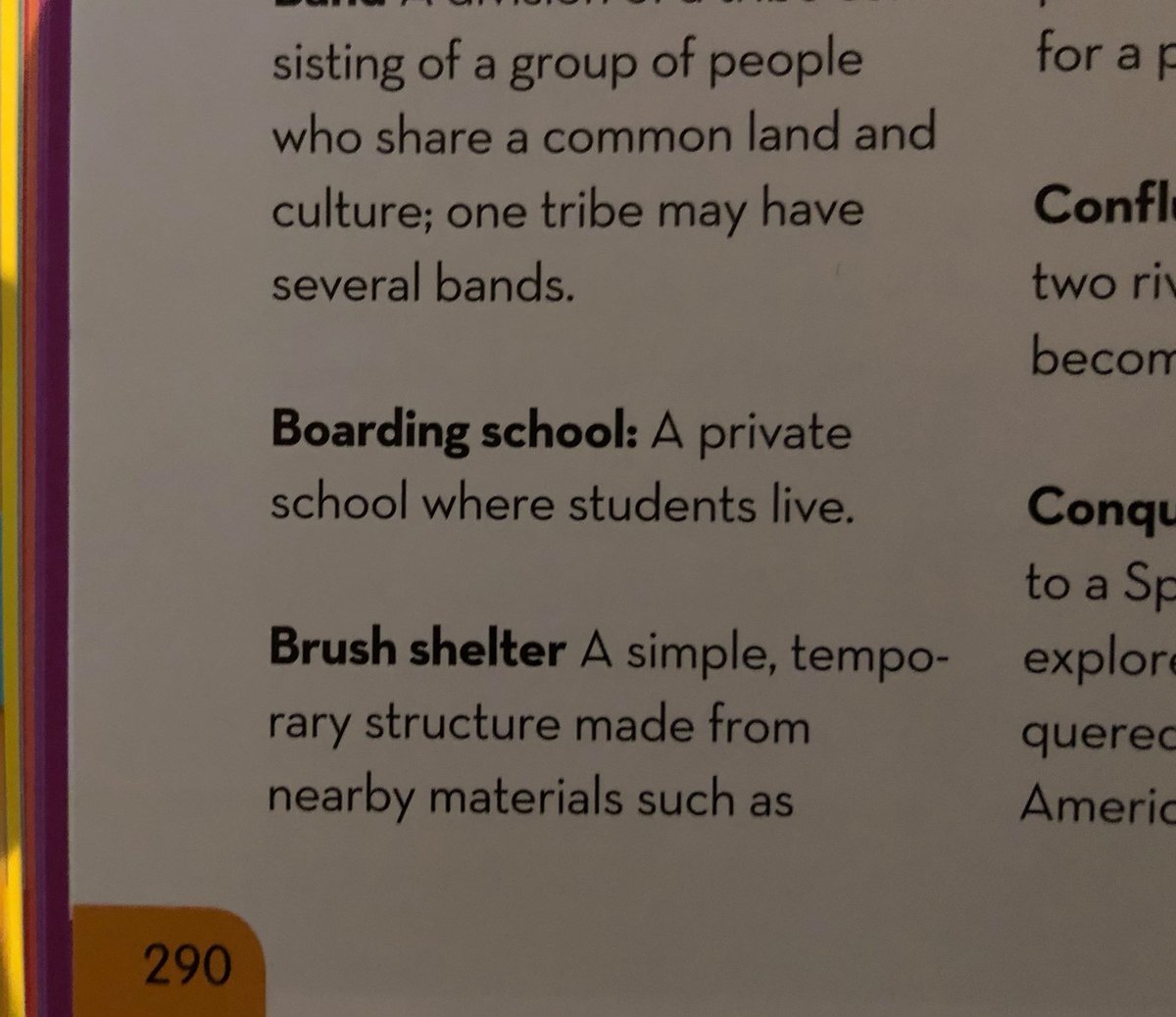
I have concerns about the photos and art used throughout. Here's some artwork that appears on the timeline about the southwest. See the boxes with specific years? None of them tell us what that art is supposed to represent:
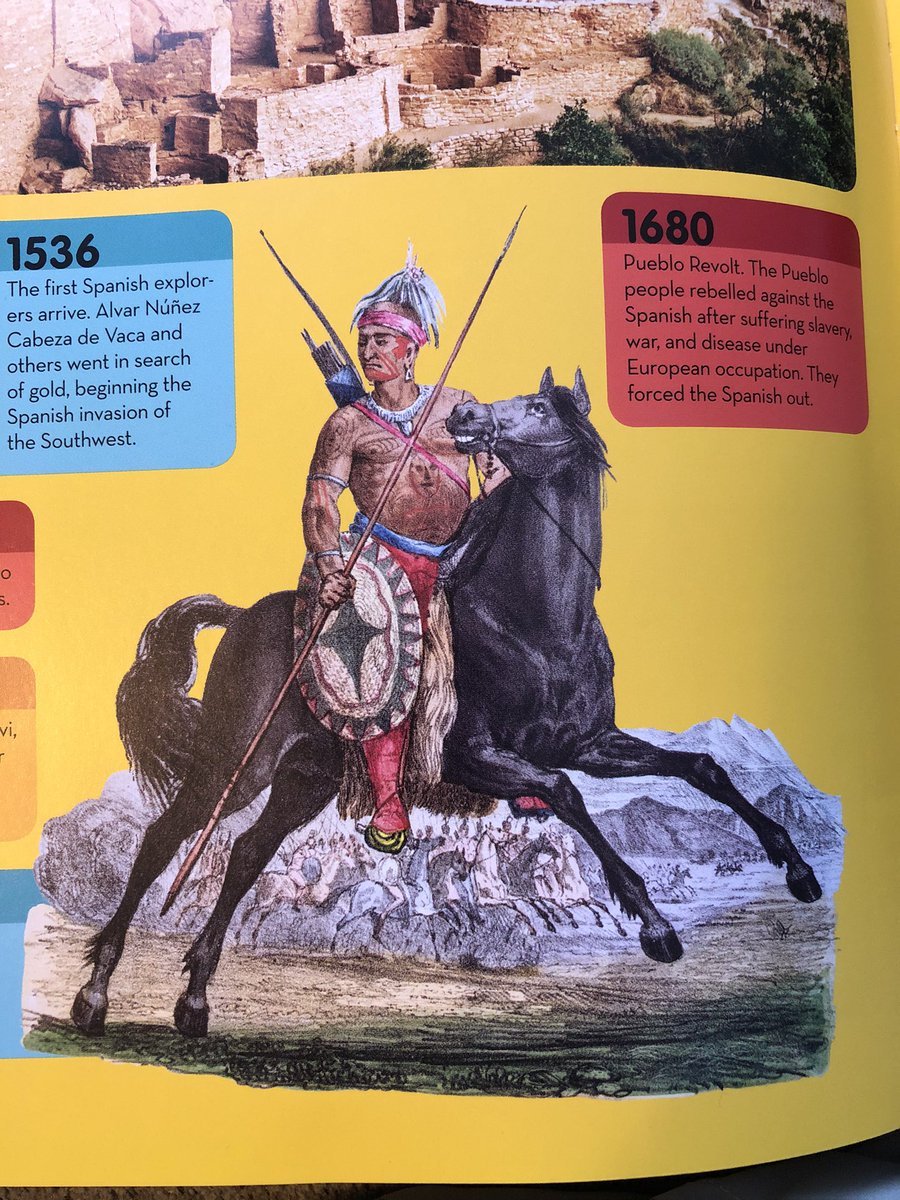
I'm still mulling over what sort of analysis I will do on this book.
What do we expect from an encyclopedia? Some of us know that National Geographic has a problematic history of misrepresentations, biased information, exotic treatments of people... They knew they had problems, and asked a historian to do an analysis of their covers. (nationalgeographic.com/magazine/2018/…)
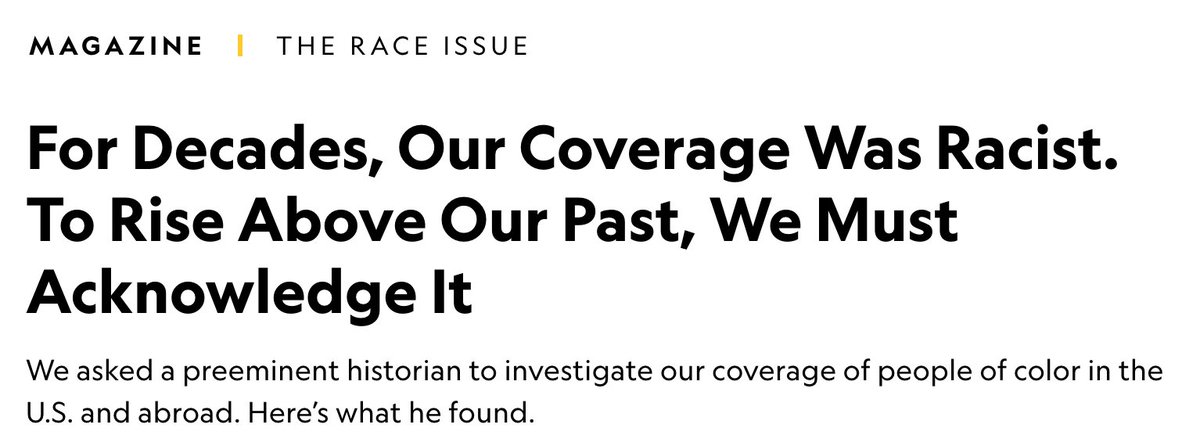
The book I'm discussing in this thread is an encyclopedia. It 304 pages long. It is meant for kids between 8-12 years old, or 2nd-7th grade. That's a huge span in reading ability. I'm critical of rigid adherence to who can read what, when, etc. but this bk is a bit of a stretch.
One thing I've talk abt w/ colleagues in publishing/review circles is the use of sepia-toned photos, esp. those by Edward S. Curtis.
I am pretty sure you've seen his work. It gets used, uncritically, a lot. Ppl assume photos from that period are authentic, but, they aren't.
Here's an excerpt from a good article about Curtis's body of work: (artsy.net/article/artsy-…)

The Publisher's Note for this encyclopedia takes abt 1/3rd of this page:
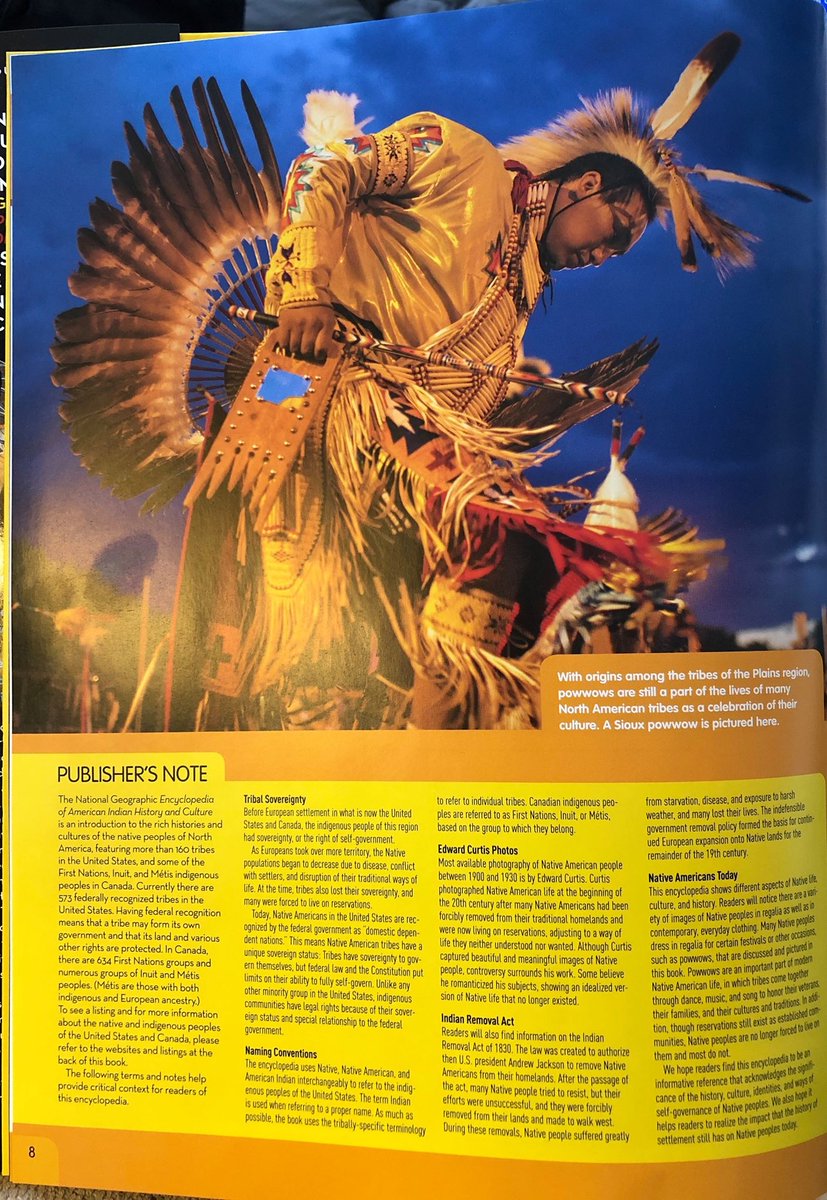
As I share photos I take as I look through the bk, I'm sure you'll notice things I did not see. I welcome replies or retweets with comments. Here's a closer look at the Publisher's Note. I put a pencil there for scale so you can see the print size on that page.
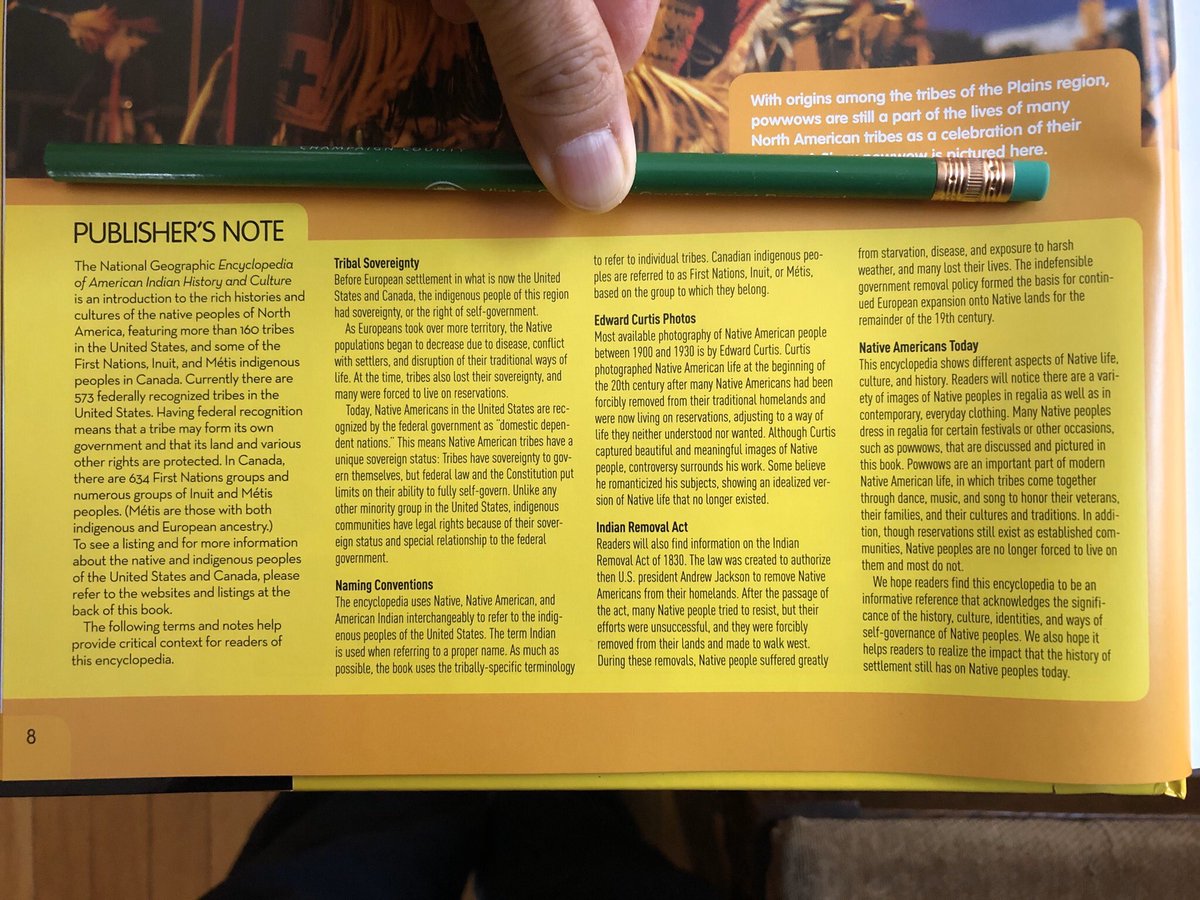
That note [bottom of first column] says that "The following terms and notes help provide critical context for readers of this encyclopedia." One of those notes [third column] is about Curtis photos. In essence it is a caution abt the controversial nature of his work.
But, the caution itself is useless because as you page through the book, which of the photos are by Curtis? We have NO WAY TO KNOW. Captions don't tell us. See? This photo is on page 20 on the Ahtna page:
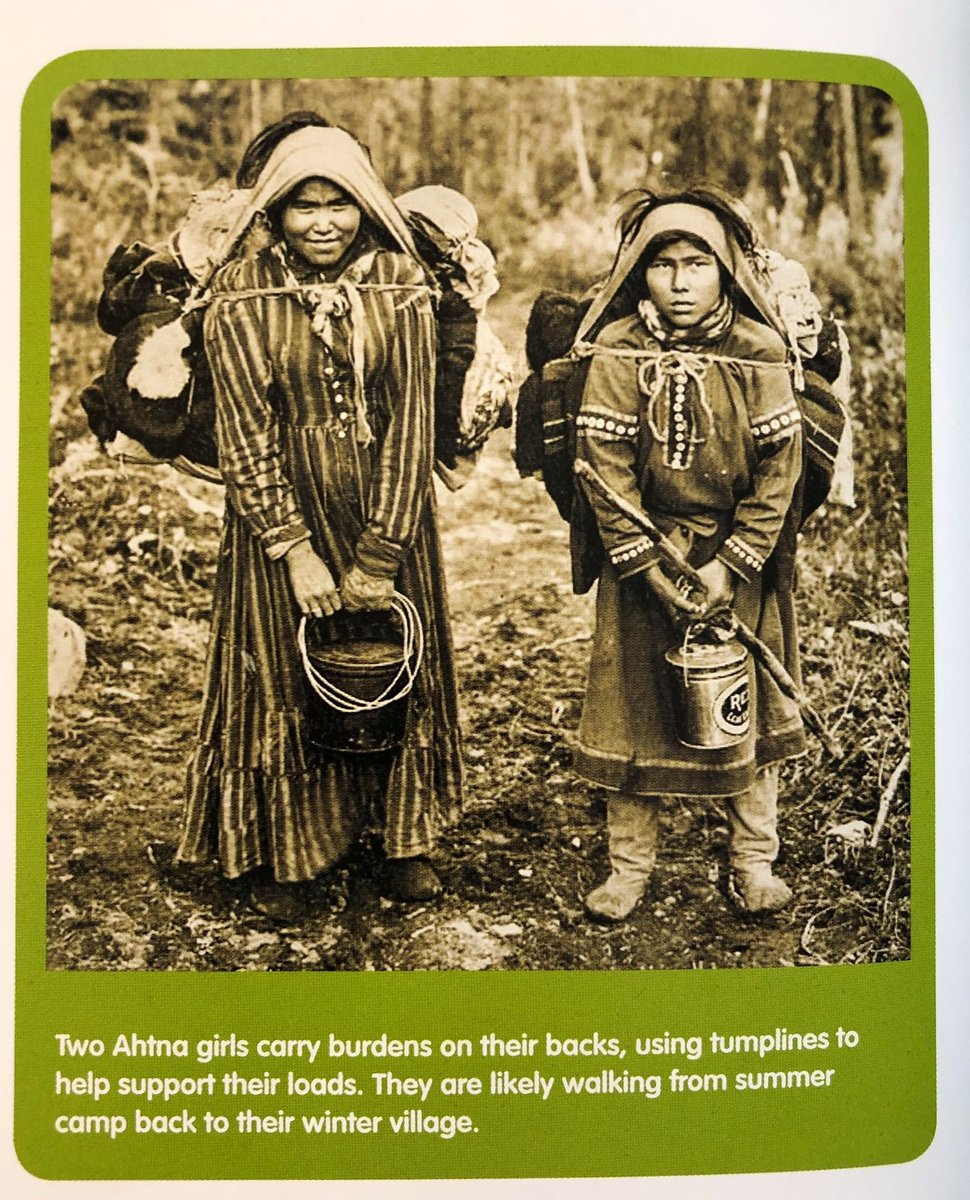
A teacher or librarian wanting to know if it is a controversial photo would look it up in the Photo Credit pages, but... no mention of the photographer there, either. Look in the ARCTIC section to find info on page 20.
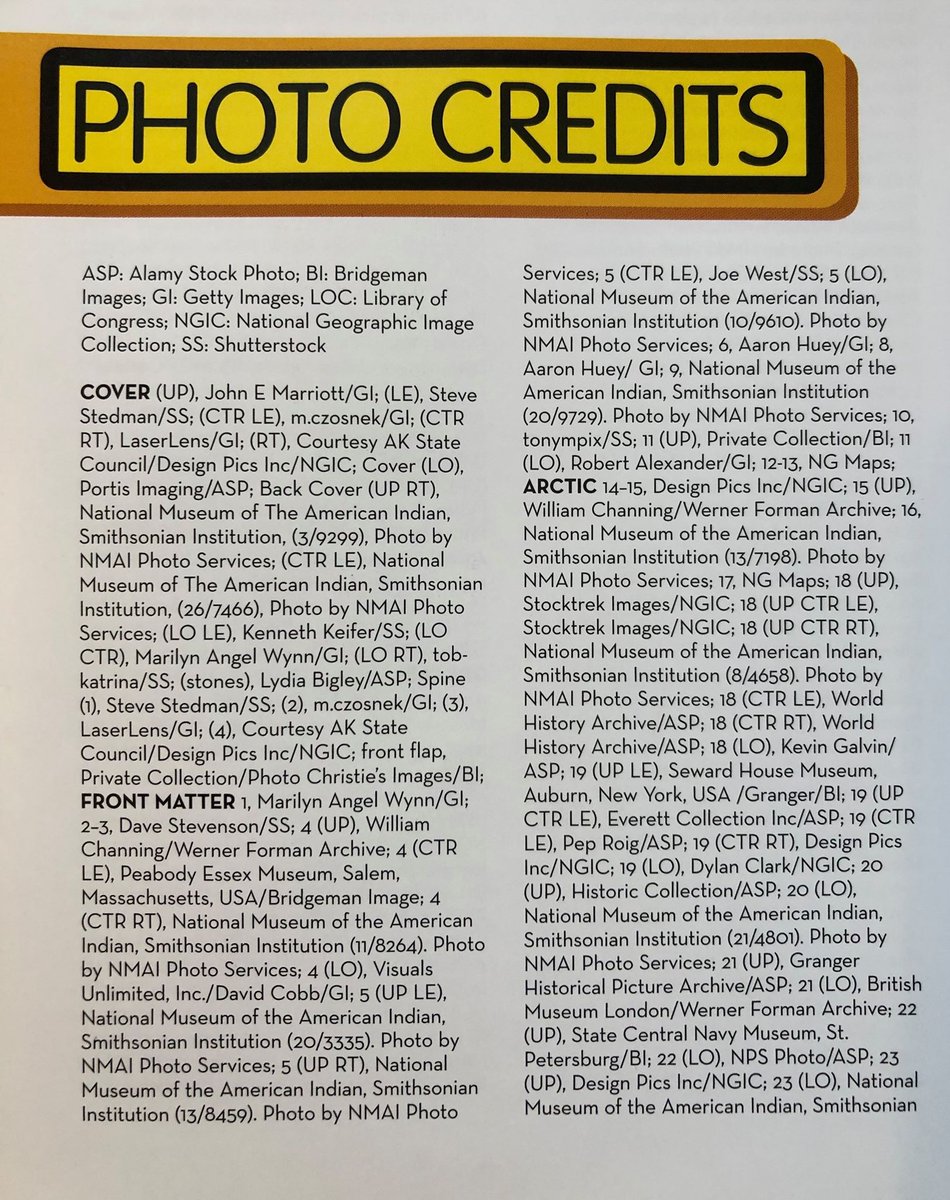
Earlier I asked ppl to share their observations of photos I'm pasting in this thread. Here's one from @desmondcwong, about the Publisher's Note on the Métis:
The description of the Métis as people with both Indigenous and European ancestry instead of a distinct sovereign Nation and polity is already inaccurate and harmful. twitter.com/debreese/statu…
Circling back to the "Two Ahtna girls" photo, I found it online, here:
In the original photo, you can see the name "Miles Brothers" on the lower left but that info was cropped out of the photo in the encyclopedia. (en.m.wikipedia.org/wiki/File:Two-…)
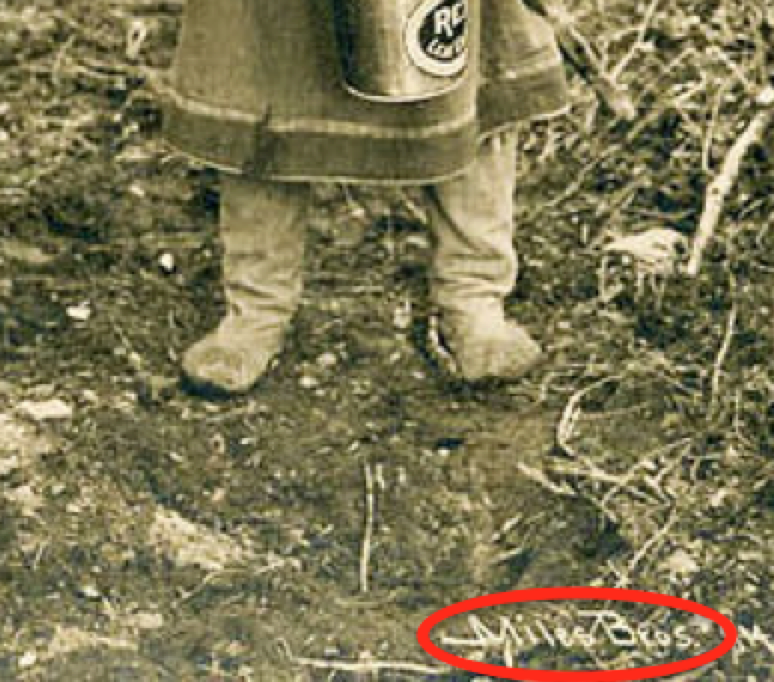
Do readers assume that all the photos in this book are by Curtis? They aren't, as my search for "Two Ahtna girls" shows. I know that Curtis is not the only photographer who staged photos. Did Miles Brothers do that, too? That last is a question for myself, really, for further research on my own.
The larger point is about how an encyclopedia presents information about photographs, and who took them. Ok... shall I page through and see if I can find a Curtis photo? (Nods to self.)
Finally found a Curtis photo, on page 125. Caption says "Lone Wolf, also known as Guipago, was chief of the Kiowa tribe in the 1860s and 1870s. He led the tribe's warriors in raids against other tribes. He is pictured seated with his wife, Etla."
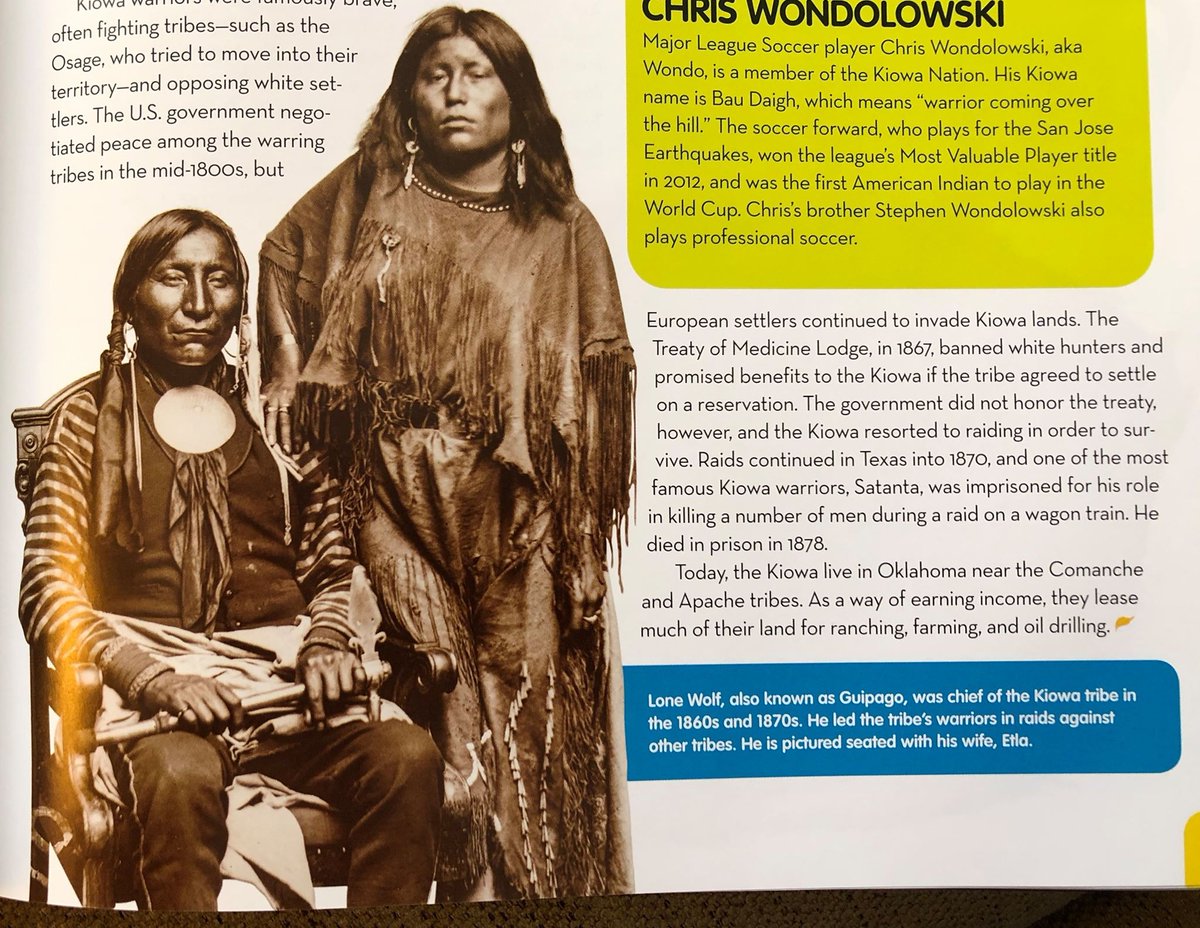
Here's info about it being a Curtis photo from the Getty file: but the Library of Congress doesn't name the photographer: (I'll keep looking...) (gettyimages.com/detail/news-ph…) (loc.gov/item/201789671…)
In the meantime, I'm paging on thru the book. I've found several black and white or sepia-toned portraits or photos and looked them up. So far, none of them are by Curtis.
Ok, here's a photo on page 187. The caption (as is the case throughout the book) does not tell us who the photographer is. I found the photo at the Library of Congress. There, it says Curtis is the photographer. (loc.gov/item/97505232/)
Ok, here's a photo on page 187. The caption (as is the case throughout the book) does not tell us who the photographer is. I found the photo at the Library of Congress. There, it says Curtis is the photographer. (loc.gov/item/97505232/)
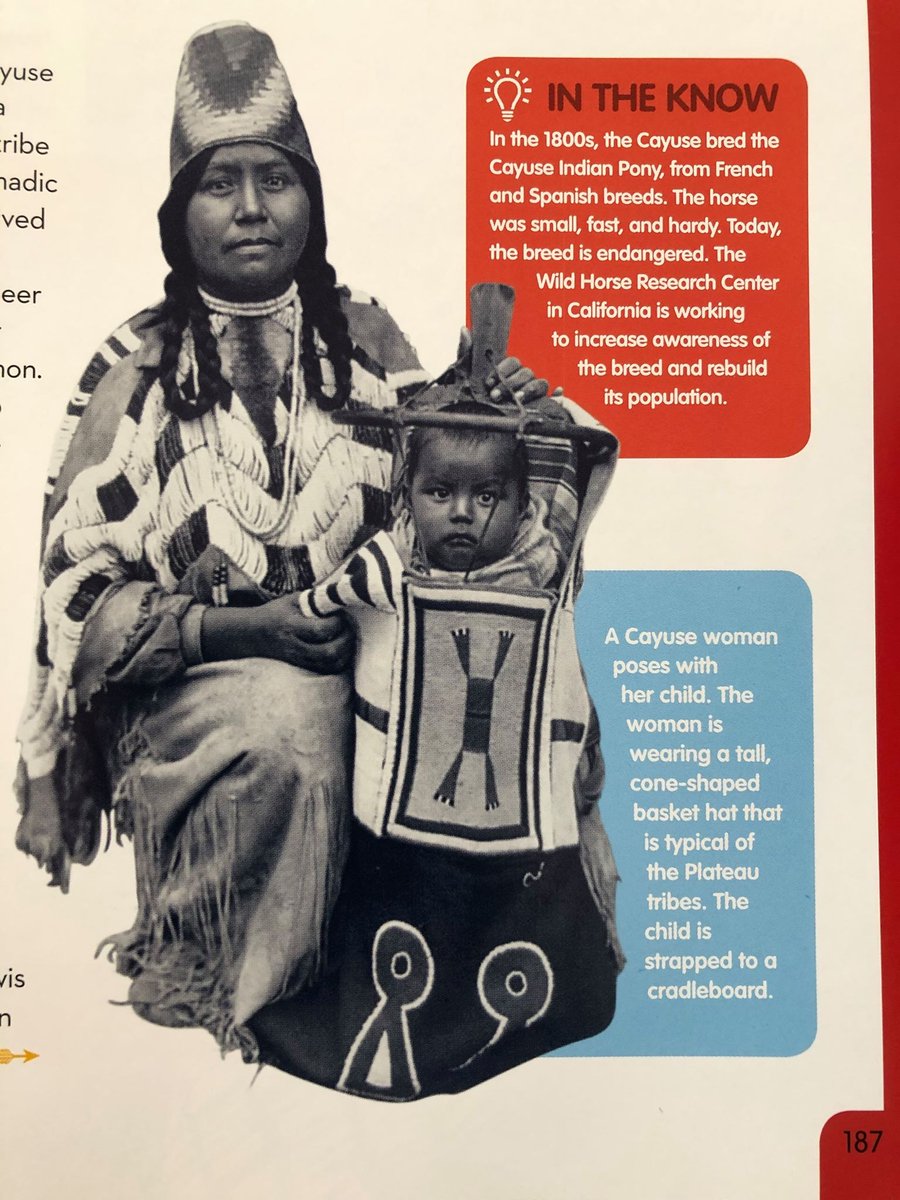
To remind you why I'm doing this close look at the photos in this National Geographic encyclopedia: it has a note up front that is a caution about Curtis photos. But none of the photos throughout the 300+ pages are captioned with photographers names.
As we look at that "Cayuse woman" photo, did Curtis do something to romanticize the woman and her baby? We don't know--and that's a problem for an encyclopedia -- especially one that tells readers to be careful of photos!
So far in this thread I've focused on photographs because this encyclopedia is full of images. Some are paintings, some are photographs of artifacts, and some are black/white or sepia, or full color photos of Native ppl.
Kids will hone in on the images on these pages. Those images will carry a lot of weight! This is an encyclopedia. The information provided in captions must be accurate!
Especially because we all know that most kids who pick it up will already have a lot of biased info about Native peoples, that they were "taught" by someone.
On page 193 of the encyclopedia is a photo w/caption "Klamath people built round, pole-framed houses in summer, and covered them with mats (pictured). Winter homes were built partly underground." LOC says it is a Curtis photo.
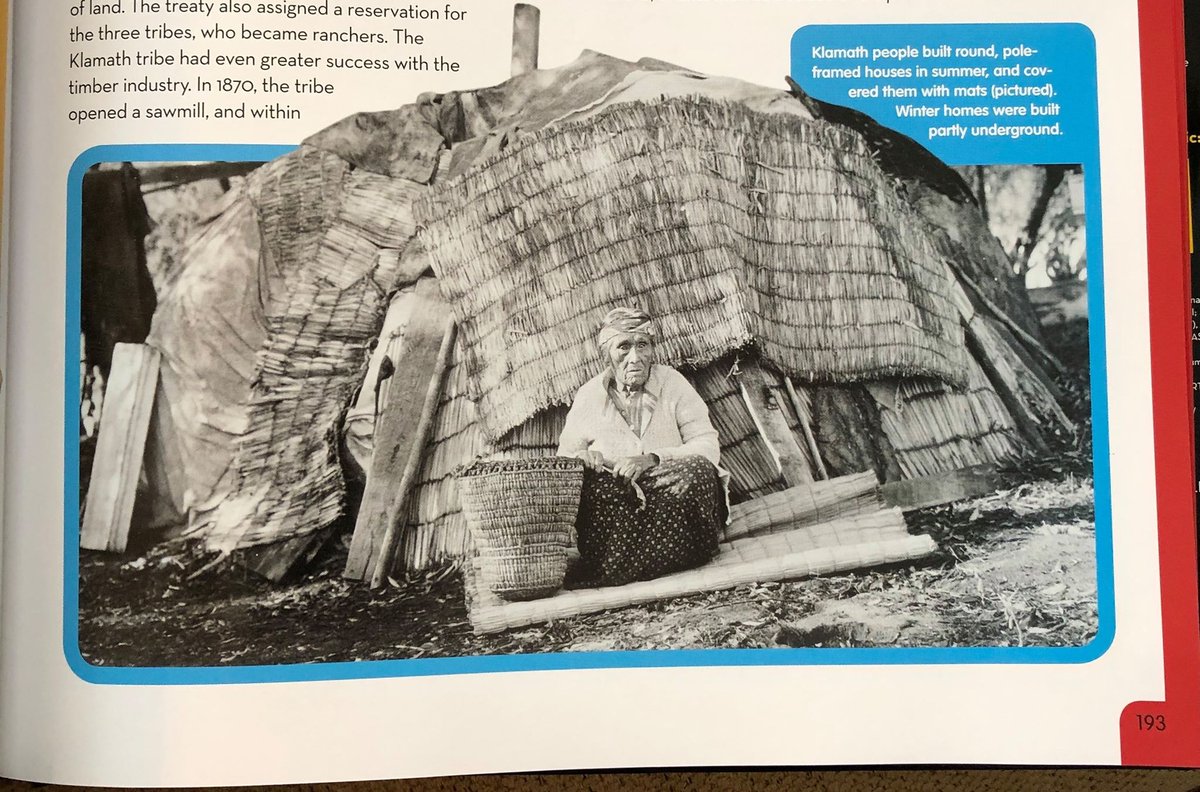
Feedback I've gotten in the thread that I want to add to the thread itself so others can see include:
Randell Baze, a Native librarian (see his Twitter profile @RandellBaze) noted the frequent use of Fancy Dancers on book covers:
Well, that's about all I want to do right now on old photographs. Maybe I'll take a look at images per page, do some counts and see how that looks. I will say this: the book is heavy. My wrists get tired holding it up.
Elsewhere I noted that the white font on yellow background is a design flaw. It is hard to read and I think it would fail a contrast test.
In my quick count of images in the first section, Arctic and Subarctic, most of the images are photos of an article of clothing. There's 8 photos of items. Next highest count is 7 of what I called unnamed person. They're things like:
"Alutiq girl" in a traditional headdress
A woman w a handdrum; caption says "An Idle No More protest in Toronto..."
"A Gwich'in man" in a wolf mask at Denver March Powwow.
"Yup'ik elder with her grandchildren..."
"An Inuvialuit girl wears a modern-day parka..."
"An elderly James Bay Cree woman prepares a fire..."
In the back, the book includes a list of 10 consultants. I recognize a couple. They do terrific work. I doubt that they saw the glossary definition for boarding school. And I doubt any of those consultants would have said ok to "Spirit Dolls."
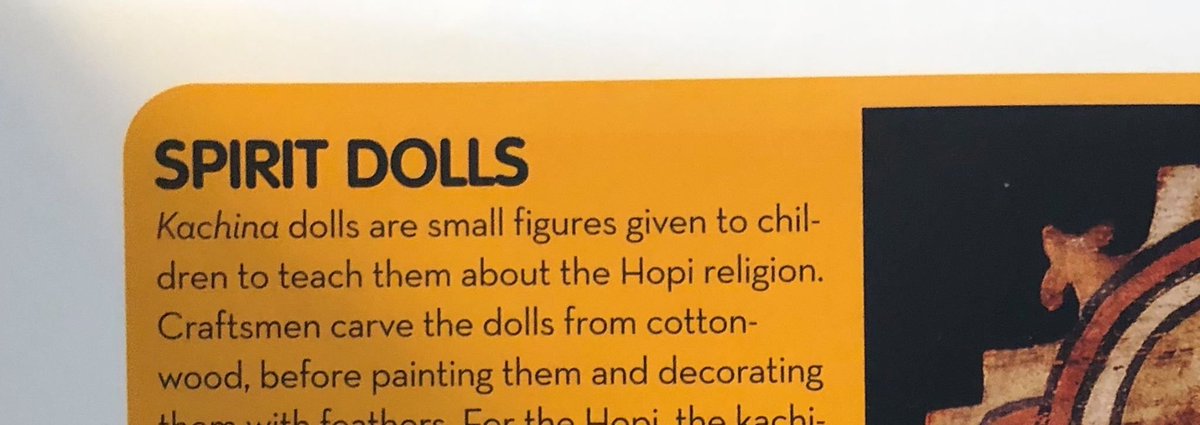
The author [of this encyclopedia] is Cynthia O'Brien.
When I look up her name in WorldCat, I see she's listed as author on Scholastic's BOOK OF WORLD RECORDS, and BEST & BUZZWORTHY 2017, and bks in Crabtree's "Travel with the great explorer's" series. So... no subject experience of her own.
My guess is that National Geographic wanted to do this book, and so, they hired her to do it.
She isn't Native. Given her lack of subject knowledge, it is no surprise that we get a book that reflects common errors in thought about who we are. Those common errors?
That we are people of the past (so, "history" is in the title).
And, the predominant use of "culture" and "tribe" and little to no use of "nation" or "sovereign nation" to describe us (so, "culture" is in the title). And, that we dance.
The large photo on the cover? A person, dancing.
The double-paged spread for the title page? A person, dancing:
When I look up her name in WorldCat, I see she's listed as author on Scholastic's BOOK OF WORLD RECORDS, and BEST & BUZZWORTHY 2017, and bks in Crabtree's "Travel with the great explorer's" series. So... no subject experience of her own.
My guess is that National Geographic wanted to do this book, and so, they hired her to do it.
She isn't Native. Given her lack of subject knowledge, it is no surprise that we get a book that reflects common errors in thought about who we are. Those common errors?
That we are people of the past (so, "history" is in the title).
And, the predominant use of "culture" and "tribe" and little to no use of "nation" or "sovereign nation" to describe us (so, "culture" is in the title). And, that we dance.
The large photo on the cover? A person, dancing.
The double-paged spread for the title page? A person, dancing:
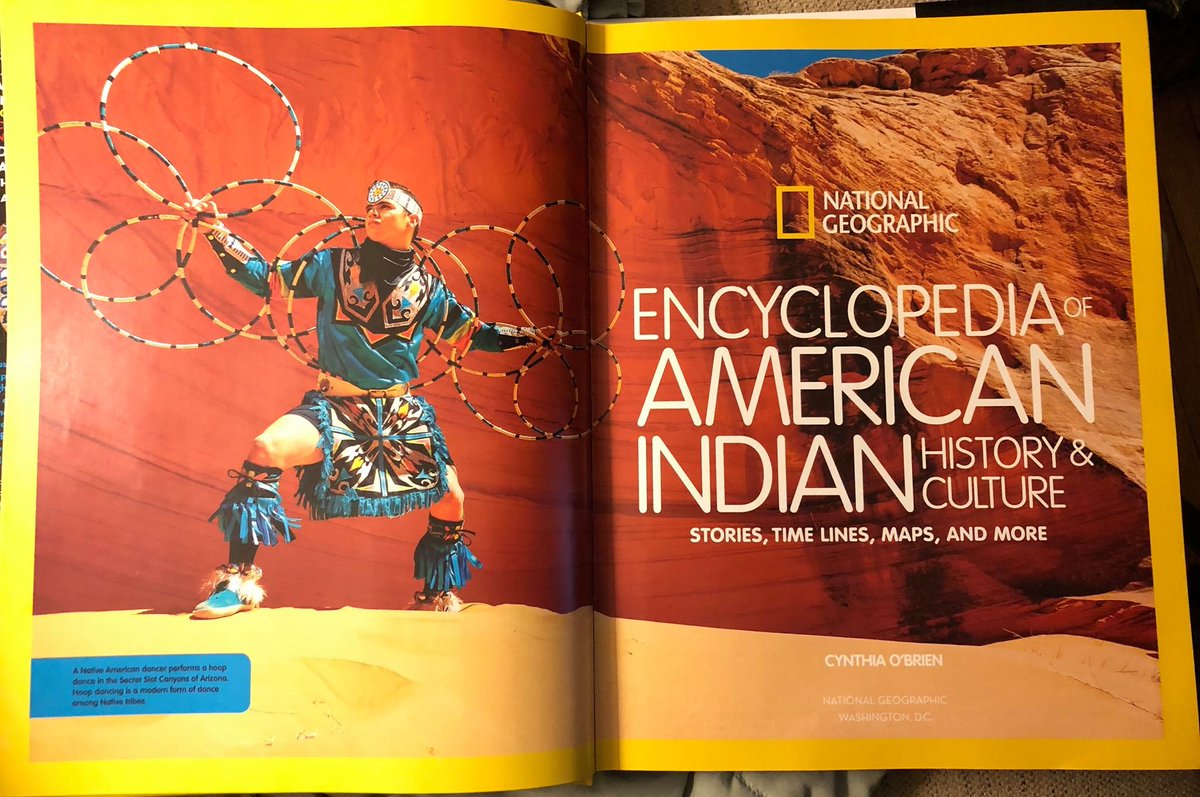
Page 8, with the Publisher's Note? A person, dancing. I shared that page before (to talk about the Curtis photos) but am sharing it again, to look at the "Tribal Sovereignty" information provided.
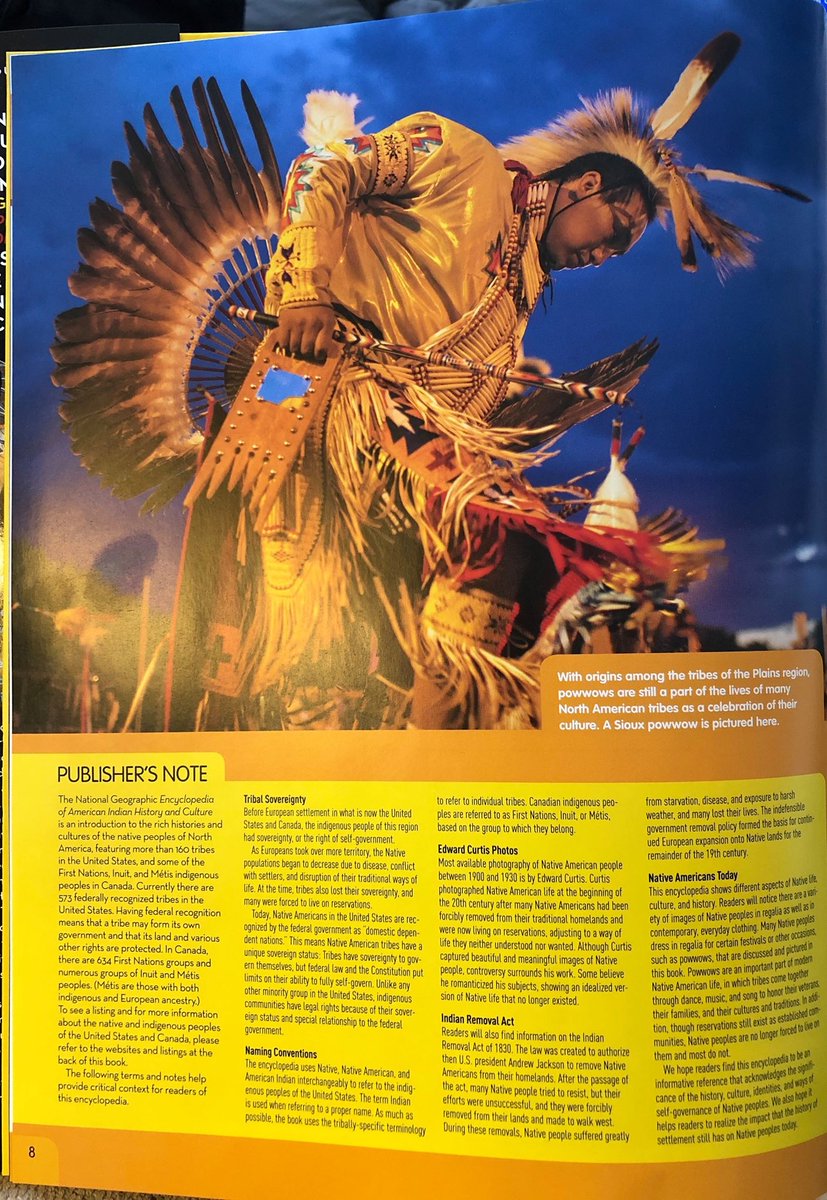
Sovereignty is at the core of who we are... but that information is sorely lacking in this book. Here, I'm zooming in on the first two columns in that publisher's note:
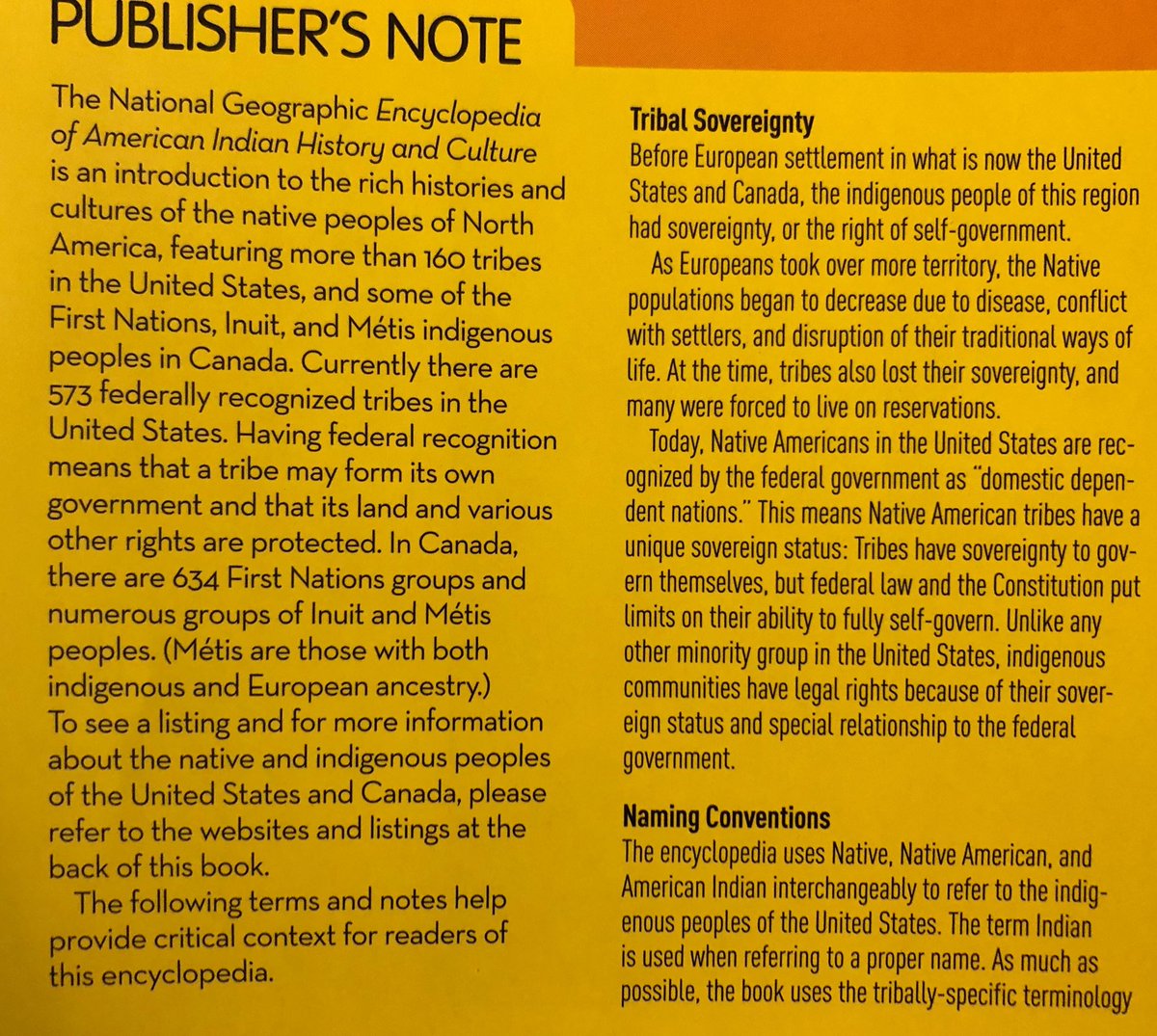
Teachers and librarians who get this book: the emphasis on visual elements of Native existence is a huge problem.
Who is in charge of the books division at National Geographic? Did they not read the critical analysis of covers of the magazine?! (nationalgeographic.com/magazine/2018/…)
National Geographic's encyclopedia doesn't use the word "savage" but many images in the book go that route. Consider these two photos of Manuelito, a leader of the Diné (Navajo) ppl. On the left is the one in the book, on the right is the one used by Diné scholar, Dr. Jennifer Denetdale.
The "information" (quotation marks denote my sarcasm) in the encyclopedia about the Navajo Nation doesn't use the word nation, at all.
It uses tribe and another phrase that gets used to describe Native peoples: "nomadic."
In her bk, Denetdale pushes back on use of that word. I've spent most of this day reading and studying this book's text and images. I've seen enough to determine that it will get a Not Recommended label from me.
Children deserve far better than this, National Geographic! If you have already bought a copy, see if the store will give you a refund. This truly is a waste of money.
It uses tribe and another phrase that gets used to describe Native peoples: "nomadic."
In her bk, Denetdale pushes back on use of that word. I've spent most of this day reading and studying this book's text and images. I've seen enough to determine that it will get a Not Recommended label from me.
Children deserve far better than this, National Geographic! If you have already bought a copy, see if the store will give you a refund. This truly is a waste of money.
